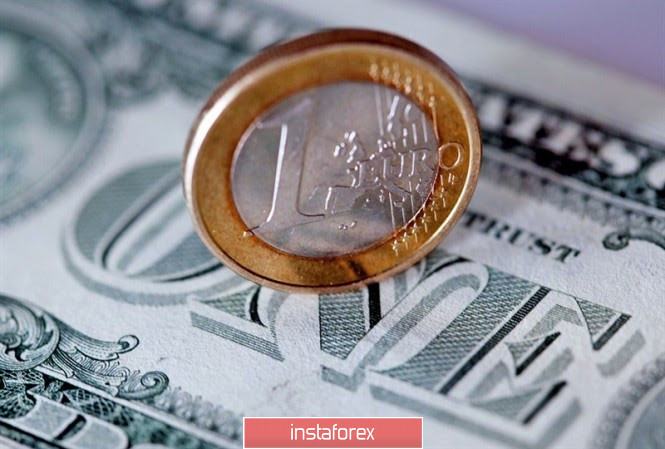
Statements by Pfizer and its partner Biotech about the effectiveness of the Coronavirus vaccine they developed roiled markets but did not lead to an increase in risky assets across the spectrum. In particular, the Euro's reaction to the news about the vaccine was rather sluggish.
Investors briefly imagined a world free of the worst pandemic of the last hundred years but quickly realized that it would take a long time to vaccinate the entire population of the planet so the victory over the virus is still not so close.
This allowed the defensive greenback to recover and move away from two-month lows.
The nearest strong resistance for the USD is located at 93.10 points and then at 93.60 and 93.95.
Recent lows in the area of 92.10–92.15 should contain attempts to decline.
Meanwhile, the Euro is once again facing a harsh reality. COVID-19 continues to negatively affect Europe. Vaccination of the population will most likely begin no earlier than 2021. The fourth quarter of this year promises to be a terrible one for the Euro, and investors seem to be preparing for such a development.
Data released yesterday showed that the Zew Institute's business confidence index for the Euro zone economy fell to 32.8 points in November from 52.3 points recorded a month earlier.
The collapse of the indicator turned out to be sharper than experts expected, and reflects fears of a new wave of recession in the region.
"The day before, the EUR/USD pair looked under the strong support of 1.1780 but quickly recovered and ended the day near 1.1814. The attack on strong support indicates that the pair is not ready to move to the current year's maximum at 1.2011. To do this, it must first close above 1.1915. The chances of further strengthening of the Euro have decreased. We allow the EUR to weaken to $1.1720, " UOB experts said.
According to Danske Bank, the Euro may experience difficulties in trying to beat the Dollar, even if the global economic Outlook improves due to the development of a promising coronavirus vaccine.
"The main currency pair reacted modestly to the promising results of tests of the COVID-19 vaccine developed by Pfizer and BioNTech. This means that it is not at all obvious that the Euro can break above $1.20 with any recovery in global optimism, " they said.
In recent months, risk assets have grown mainly due to continuous QE and near-zero interest rates.
"The introduction of the COVID-19 vaccine means less incentive (especially "free money") and less confidence that central banks' support for risky assets will be strong enough. Previously, it was assumed that due to the impending political impasse in the US, the Federal Reserve will be ready to provide unlimited support and liquidity. However, the sharp rise in yields at the long end of the treasuries curve and the impact of reduced stimulus when the coronavirus restrictions are lifted means that next year's stimulus may be very much reduced. How ironic: good news turns out to be bad for the market, " Saxo Bank said.
"I don't see an opportunity for a long-term bear market for the US Dollar," said brad Bechtel, strategist at Jefferies.
The United States, like the EU, has faced new outbreaks of COVID-19 but is unlikely to impose a nationwide quarantine and will be limited to local measures. Optimism about the prospects for the rapid development of an effective Coronavirus vaccine will only increase the reluctance of the US authorities to limit economic activity in the country.
"If the situation in the US economy becomes really good again, then the smile theory of the Dollar will work and the greenback will strengthen, " B. Bechtel believes.
The material has been provided by InstaForex Company - www.instaforex.com